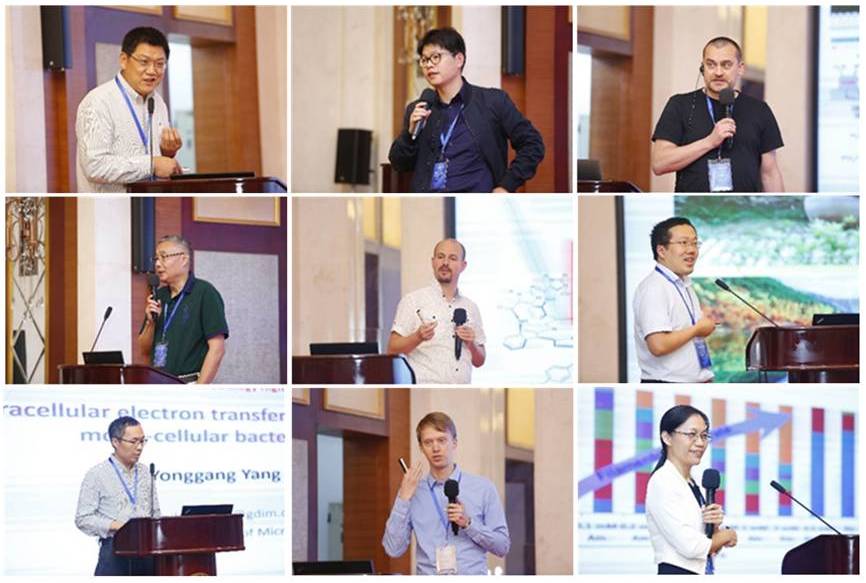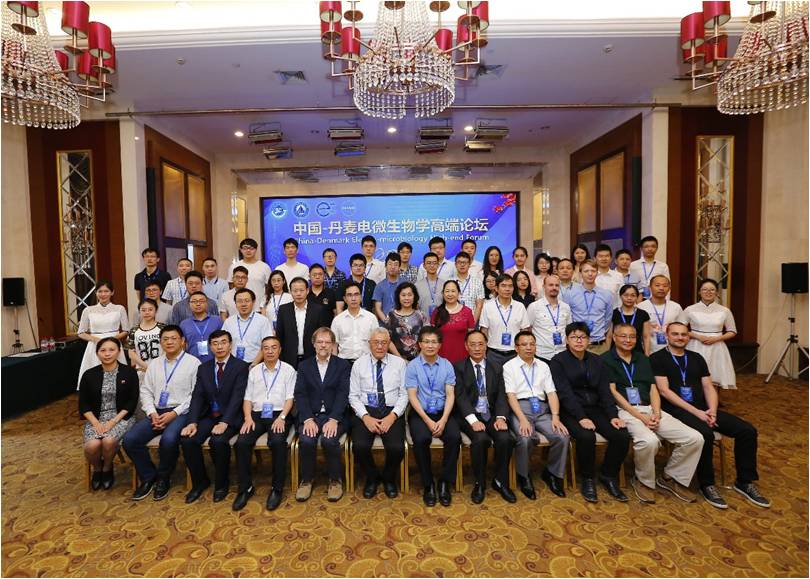Mutang Zhou, Vice Inspector of Guangdong Science and Technology Department, pointed out that with the increasingly prominent basic and strategic position of biotechnology in leading the future economic, biotechnology industries will profoundly change the world economic development mode. In recent years, the provincial Party committee and the provincial government have paid more attention to biotechnology industries, and Guangdong Science and Technology Department has continued to increase its support for biotechnology industries. He said that the establishment of the international center for electromicrobiology in China would have a significant impact on not only the development of various scientific fields, such as microbiology, environmental science, and materials science but also the development of biomedical and biotechnology-related industries in Guangdong Province. The Guangdong Science and Technology Department would promote the development of the field of electromicrobiology by supporting international cooperation and major science and technology projects and expect the scholars of both countries to make remarkable achievements in this field.
On behalf of the Guangdong Science and Technology Association, Riguang Feng wished the forum a complete success and welcomed the arrival of experts and scholars from China and other countries. He said that Guangdong Province is at the forefront of ‘reform and opening up’, and has been committed to the construction of the National Science and Technology Industry Innovation Center and the Pearl River Delta National Independent Innovation Demonstration Zone. Guangdong Science and Technology Association, working as a bridge linked the Guangdong provincial party committee and the provincial government and scientists and technicians, would continue to support the development of science and technology in Guangdong province through various forms. He had full confidence in the cooperation between China and Denmark and wished the cooperation and exchanges between the two parties continuously would achieve fruitful results.
Director Honghui Zhu on behalf of one of the forum organizers, Guangdong Institute of Microbiology, warmly welcomed all attendees and expressed her sincere thanks to the leaders and experts assisted in organizing this forum. She expected that with the joint efforts of China and Denmark, the China Center for international electromicrobiology, which based on State Key Laboratory of Applied Microbiology Southern China, would become an international first-class platform for innovation, communication, and cooperation, to attract higher-level electromicrobiology research teams globally, for training young scientists with international vision and higher international influence, and contributing to the rapid development of international electro-microbiology.

Welcome Speech, Honghui Zhu, Director of Guangdong Institute of Microbiology
After welcome speeches, Jun Guo, Lars Peter Nielsen and Mingdong Dong signed the cooperation agreement on a joint construction of the “Sino-Danish International Research Center for Electromicrobiology” on behalf of State Key Laboratory of Applied Microbiology Southern China, the Center for Electromicrobiology, and the Interdisciplinary Nanoscience Center, Aarhus University, Denmark. And then, Director Jun Guo and Director Honghui Zhu jointly issued letters of appointment to Lars Peter Nielsen and Mingdong Dong as guest professors.

Singing Cooperation Agreement
During scientific presentation sessions, Academician Guoping Zhao gave a keynote speech entitled "Microbes in Hydrosphere - NSFC Major Research Initiiative and Electroactive microorganism Study." He introduced the core research issues of the Hydrosphere Microorganisms Program and the research progress of hydrosphere electroactive microorganisms. He emphasized the importance of interdisciplinary and multi-agency cooperation in the research of hydrosphere microorganisms and looked forward to the future research prospects of electromicrobiology. Professor Lars Peter Nielsen gave a keynote speech entitled “Environmental Adaptation and Impact of Cable Bacteria.” Combining his numerous years of research experience, he elaborated on the important roles of cable bacteria in the geochemical cycle of elements in sedimentary environments and shared the relevant research results. Professor Xiaolei Wu from Peking University; Professor Thomas Boesen and Dr. Jesper Tataru Bjerg from Center for electromicrobiology, Professor Mingdong Dong and Dr. Lasse Hyldgaard Klausen from the Interdisciplinary Nanoscience Center, Aarhus University, Professor Liang Shi from China University of Geosciences, Professor Zegao Wang from Sichuan University, Professor Meiying Xu and Professor Yonggang Yang from Guangdong Institute of Microbiology gave wonderful speeches on the latest scientific discoveries in electro-microbiology as invited speakers of the forum.
At the closing ceremony, Professor Nielsen expressed his gratitude to the Organizers of the forum. He believed that the forum was a great encouragement to his research team and believed that the cooperation between China and Denmark would greatly promote the development of electromicrobiology. Finally, Director Jun Guo summarized the forum. He expressed his thankfulness to all speakers and participants and looked forward to collaborating with more researchers in the field of electromicrobiology. He wished that the cooperation between China and Denmark would be smooth and congratulated on the success of this high-end forum.
Electromicrobiology is an emerging microbiology research direction that focuses on the electron transfer and energy conversion processes between microbial cells and between microorganisms and various substances in the environment. In recent years, new discoveries in the field of electro-microbiology have not only updated human understanding of the transformation of the earth's material and life, but also have an important impact on the development of microbiology, environmental science, and materials science.





